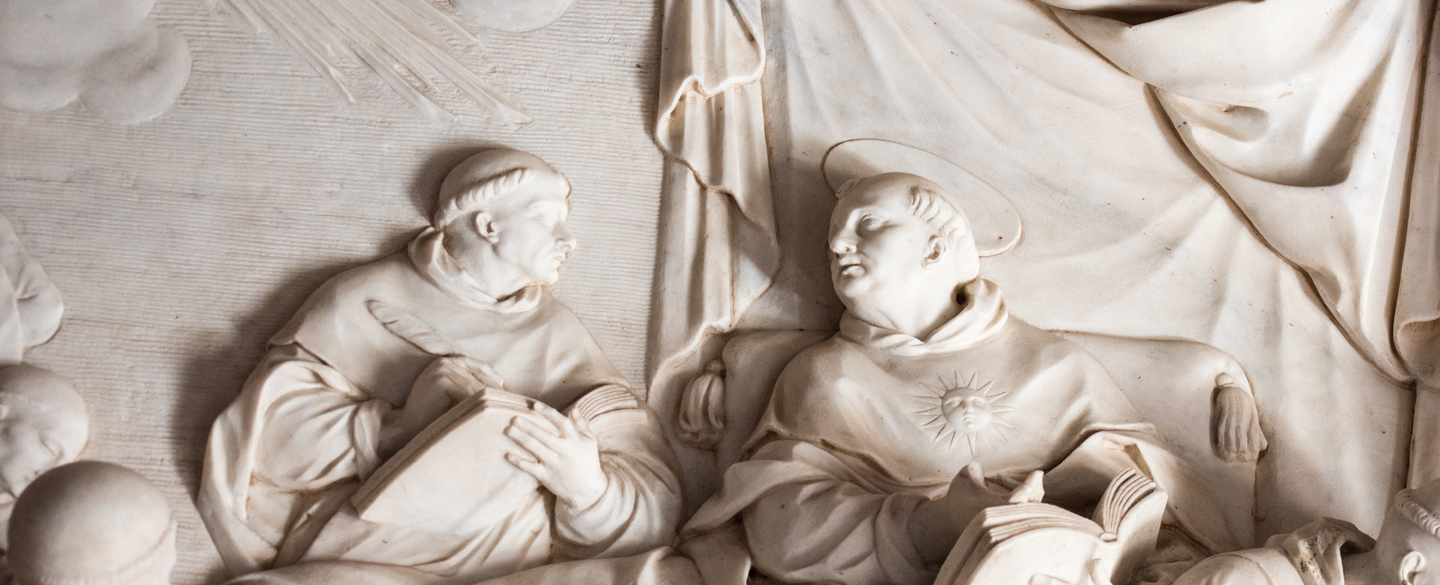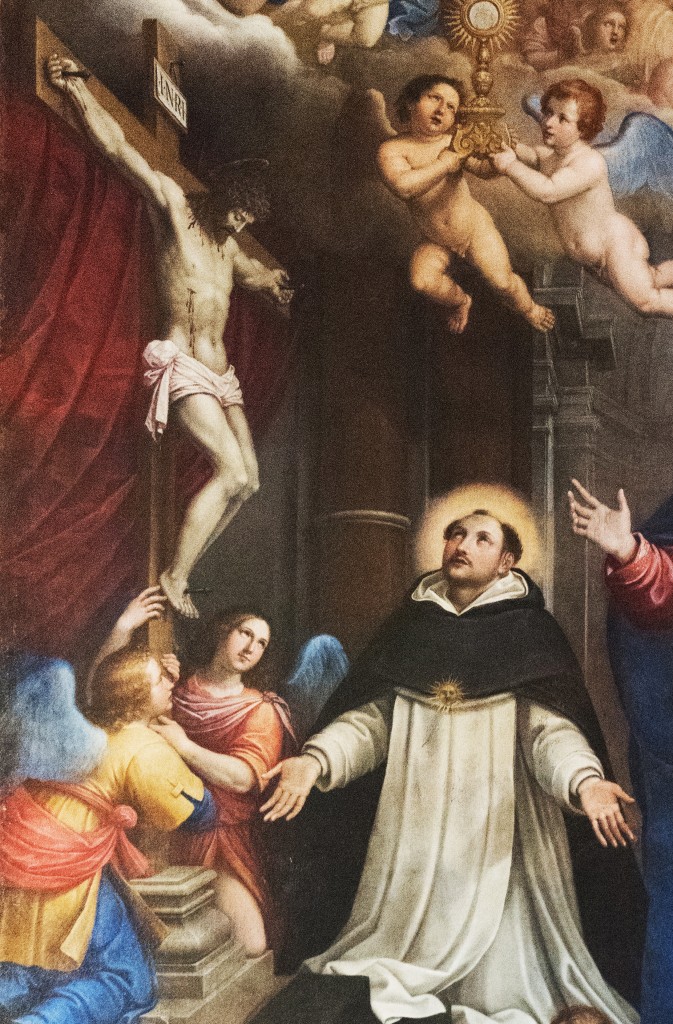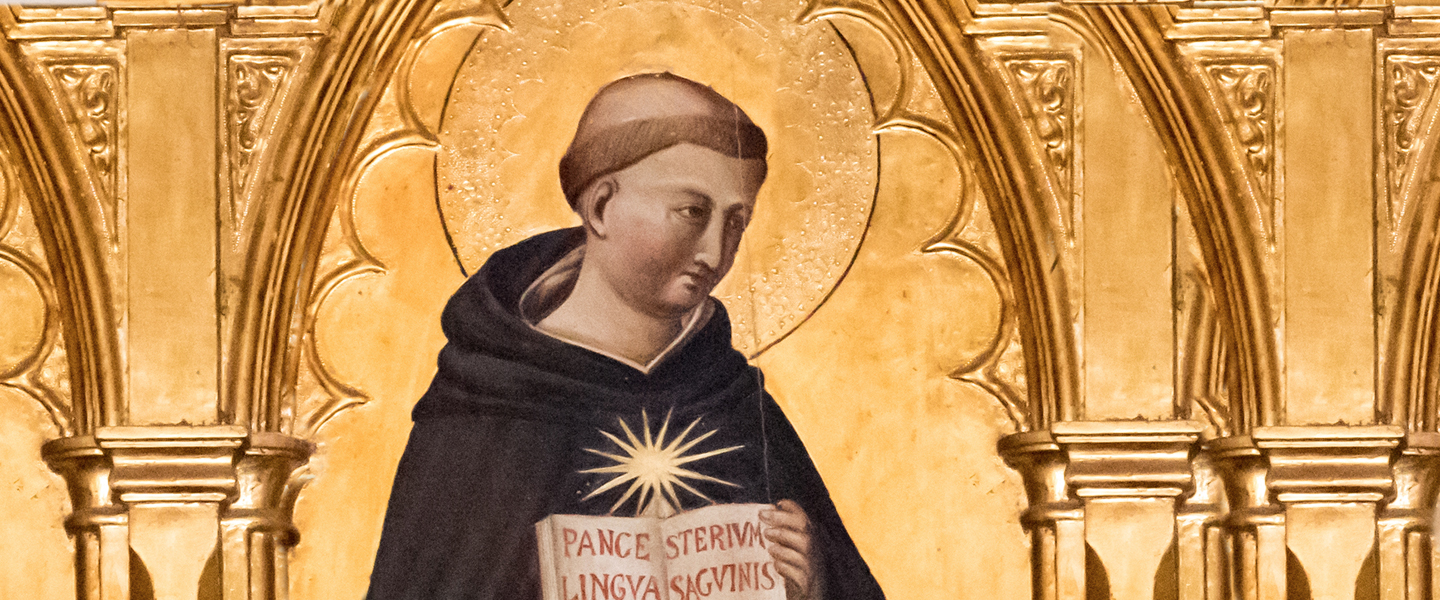
 Just as it was said to the Egyptians of old in time of famine, ‘Go to Joseph,’ so that they should receive a supply of grain from him to nourish their bodies, so we now say to all such as are desirous of the truth: ‘Go to Thomas, and ask him to give from his ample store the food of substantial doctrine wherewith to nourish your souls unto eternal life.’ (St. Pius X)
Just as it was said to the Egyptians of old in time of famine, ‘Go to Joseph,’ so that they should receive a supply of grain from him to nourish their bodies, so we now say to all such as are desirous of the truth: ‘Go to Thomas, and ask him to give from his ample store the food of substantial doctrine wherewith to nourish your souls unto eternal life.’ (St. Pius X)
St. Dominic founded the Order of Preachers to teach the truths of the Catholic faith at a time when many priests, and even some bishops, were insufficiently educated to preach. Study was the special means Dominic adopted for his friars to prepare them for preaching and to help them achieve their own sanctification through the discipline required, but especially through the food for contemplation provided by sacred study.
St. Thomas Aquinas was a true son of St. Dominic. His study and teaching have been a priceless gift to the Church. Thomas, the son of Italian nobility, was born in the family castle of Rocca Secca north of Naples in about 1225. While a student at the University of Naples, Thomas met the friars and received the habit. Thomas’ family, preferring him to have the powerful position of abbot of the Benedictine Abbey of Monte Cassino rather than the life of a begging friar in a humble new Order, kidnapped and imprisoned him until he would change his mind. Thomas’ brothers even sought to destroy his vocation by sending a woman to seduce him, but the young man drove the seductress from his cell with a flaming torch, then knelt and prayed for deliverance from all temptations against chastity. In answer to his prayer, God sent angels to minister to Thomas and to gird him with a cincture of perpetual chastity.
After a year’s imprisonment, Thomas escaped with the help of his sisters and returned to the Dominicans. Following a period of formation and study at Cologne and Paris under the tutelage of St. Albert the Great, Thomas began his life’s work of teaching and writing. He taught at universities and Dominican houses in Paris, Rome and Naples. His written works include commentaries on the Sacred Scriptures and the works of Aristotle, the Summa Contra Gentiles (an apologetic work aimed at the Muslims), and his best known work, the Summa Theologica (a work giving the theological foundation of the truths of the Catholic Faith).
A gentle, humble man, St. Thomas had a deep devotion to the Cross of Christ. He said that he had learned more from the crucifix than from any book. He began all his works in prayer at the foot of the Cross. His love for Christ in the Eucharist is apparent in the hymns and prayers he composed for the liturgy for the Feast of Corpus Christi. The best known of these hymns include O Salutaris Hostia, Tantum Ergo Sacramentum, and Panis Angelicus.
In his brief life (he was only about fifty years old when he died), St. Thomas left a treasury of wisdom and learning for the Church, for which she has honored him with the title “Angelic Doctor.” Both the Council of Trent and the Second Vatican Council relied on and explicitly mentioned his works, especially the Summa Theologica.
Today, as Dominican Sisters of St. Cecilia, we study the works of St. Thomas Aquinas during formation and beyond. More important than studying his great works, we look to him as our brother, model, and guide in living Dominican life. His love of the Eucharist inspires us as we pray his words, “O Sacred Banquet in which Christ is received...” before the Divine Office three times each day. We seek to imitate his devotion to study and, as he said, “to contemplate so that we may give to others the fruits of our contemplation.”
Feast: January 28


 Back
Back